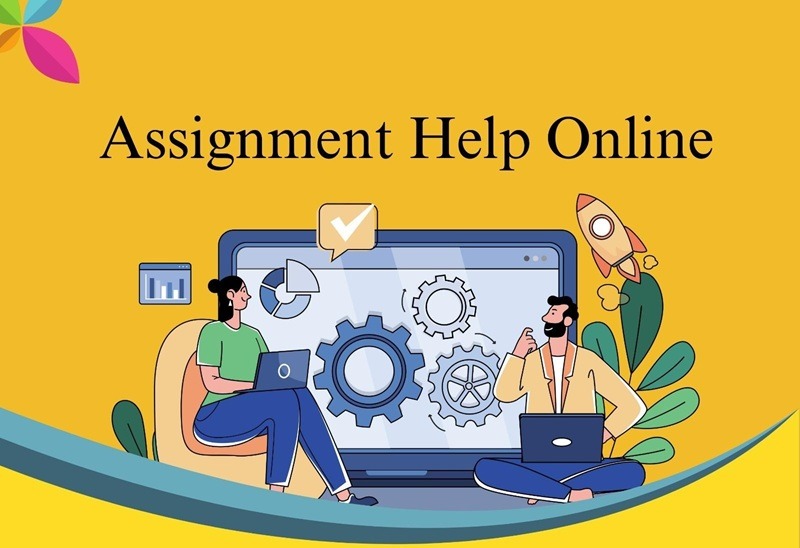This manual attempts to explain how an open process can help students make better choices when seeking assistance with their education. Whether managing tight deadlines, tough subjects, or simply needing a clearer picture of how assignments are finished, transparency plays a critical role in being able to trust what aid is employed.
Why Transparency in Assignment Help Matters
Transparency creates trust, and trust is required in delegating scholarly tasks. A provider that keeps its process under wraps or won’t respond to questions can be suspicious. Alternatively, an open provider clearly states every step—making it easier to manage expectations, avoid scams, and obtain scholarly assistance that complies with learning standards.
Common Issues Experienced Without Transparency:
- Hidden fees after the initial quote
- Missed deadlines without explanation
- Poor quality or plagiarized work
- Failure to provide updates or communication
- Vague revision or refund policies
Open process assignment assistance avoids all of these pitfalls. Students are informed, can track progress, and are provided more control over the manner in which their assignments are handled.
Warning Signs of an Open Assignment Help Service
Unsure what an open process is? These are the most critical signs to watch for when evaluating educational support services:
1. Clearly Described Step-by-Step Process
A transparent assignment help provider will typically specify the entire process, from placing the order to receiving the final draft. This typically includes clear steps that guide students through each stage, ensuring there are no surprises along the way.:
- First reading of the brief or requirements
- Quotation of price and payment terms
- Writer selection or matching
- Progress reports or draft milestones
- Final handover and capacity to revise
This structure guarantees that students know what they are getting into—no surprises, no misinterpretation.
2. No Hidden Fees with Upfront Pricing
Price transparency means no add-ons at the last minute and vague quotes. Students must:
Know what they are paying for
- Be able to visualize how the price alters in terms of deadline, word requirement, or complexity level
- Be told whether extra features like plagiarism report or priority delivery are paid options
- A fair assignment help service will clarify all this upfront.
3. Realistic Deadlines and Expectations
Beware of services that offer ultra-fast delivery for complicated assignments. Transparent services do not pretend more than what can be achieved in a timeframe. Look for:
- A realistic estimate of how long the assignment will take
- Choices to choose deadlines with transparent turnaround times
- Clarification of when drafts or revisions will be delivered
- Rapid work is not always good work. A reliable service honors both time and quality.
4. Revision and Refund Policy in Writing
A written guarantee is perhaps the strongest signal of transparency. This can include:
- Number of free revisions included
- Conditions on which refunds will be made
- Clear timelines for handling revision requests
- These policies protect students from being handed bad work and then left in limbo.
What a Transparent Assignment Help Journey Is All About
This is a closer look at how a transparent process usually plays out:
Step 1: Short Submission and Requirement Discussion
Students give assignment instructions, word count, format style (e.g., Harvard, APA), and deadline. The supplier returns with confirmatory questions to avoid future misunderstandings.
Step 2: Quotation and Scope Agreement
An exact price is provided upfront, typically with detail. The supplier states what’s included—such as depth of research, formatting, or referencing.
Step 3: Expert Assignment Matching
Some services mechanize assignment of work; others allow students to choose from available experts. Under open arrangements, students may even view profiles or credentials of potential writers.
Step 4: Monitoring for Progress
This can involve:
- Regular updates by email or dashboard
- Drafts sent at milestones
- A point of contact for queries or amendments
- Reassurance and collaboration are facilitated by this step.
Step 5: Quality and Delivery
Finished work is quality-checked once completed. Open providers are more likely to do:
- Plagiarism reports
- Formatting critiques
- Grammar and clarity editing
After delivery, students may request amendments or highlight issues based on the agreed policy.
Questions to Ask Prior to Choosing a Service
In an effort not to be in the dark, students ought to ask the following prior to paying for any academic service:
- Can you walk me through the process from order to delivery?
- Are there any hidden charges or fees?
- How do I get to interact with the writer or expert?
- Do you provide a plagiarism report with every order?
- What is your revision and refund policy?
- Do your experts know UK university standards?
A good assignment assistance provider will answer these confidently and in writing.
Red Flags That Signal a Lack of Transparency
Certain providers make it clear what they do, while others rely on vague promises and lack of information. Be wary of:
- No visible process or customer support channel
- Generic templates only for all assignments
- 1-hour or 2-hour delivery guarantee on complex tasks
- No option to view revision policies
- Plagiarism report available only at extra cost
- No communication or late response
- These are signs that the service may not be designed with student interests in mind.
Benefits of Choosing a Transparent Assignment Service
As soon as the student knows how their work is being treated, there are numerous scholarly and psychological benefits:
Peace of mind
Transparency erases worries about deadlines or ambiguity.
Better scholarly outcome
Flawed feedback loops allow the scholar to become clearer on the issue.
Process of learning
Accountability
Structured, public system ensures the supplier can be held accountable for satisfaction expectations.
Additional Things That Capture Transparency
A few assignment services go one step further by offering value-added transparency features:
- Assignment tracking dashboards
- Chat directly with academic expert
- Estimated delivery countdowns
- Sample work portfolios to view writing quality
- Automated alerts for draft or delivery status
These aren’t required, but they add an additional layer of trust and confidence to the overall experience.
Student Tips: How to Get the Most out of an Open Process
Despite a good service, students can get more out of the process by taking the initiative:
- Provide clear briefs and course guidelines
- Regularly check work and ask for updates
- Use drafts to cross-reference academic sources
- Critically read completed work for learning purposes
- Make a note of citation style and structure for future purposes
Assignment aid should accompany study—not replace it. The more invested the student, the better the help is.
The Role of Ethical Practice in Transparent Assignment Help
Ethical practice is important. Seeking help is fine, especially when one is in a dilemma or under pressure, but students need to avoid services that facilitate plagiarism or dishonesty.
Transparent agencies will:
- Warn against submitting finished work in its entirety
- Invite rewriting or comprehending the material provided
- Promote good scholarly conduct
- This protects both the student’s academic record and integrity.
Conclusion
Choosing assignment help with an open process isn’t all about avoiding scams—it’s about giving students the ability to learn, get their work done on time, and feel confident in their studies.
By making transparency a priority, students can make informed choices that lead to improved outcomes, more productive studying, and ultimately, improved academic success.
Recommendation
For those students who need assignment help with an open, ethical, and student-focused process, Assignment in Need (assignnmentinneed.com) is a consideration. With step-by-step procedures, fair prices, and understandable policies, it offers a transparency that can make academic assistance both reliable and productive.
Ashish Gupta is an SEO Project Manager at Sterco Digitex Pvt Ltd with 12+ years of experience in Digital Marketing, Search Engine Optimization and Blogging. He specializes in technical SEO, keyword research, website audits, and organic growth strategies. Ashish has hands-on expertise with industry-leading tools including Google Search Console, Google Analytics, SEMrush, and Screaming Frog. He shares practical, experience-based SEO insights and proven strategies to help businesses improve search rankings, traffic, and online visibility.
LinkedIn: https://www.linkedin.com/in/ashishgupta90/



